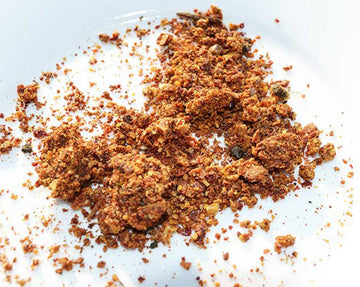What is Propolis?
Propolis, also known as "bee glue," is a sticky, resinous substance collected by bees from tree buds, sap flows, and other botanical sources. It has a distinctive woody scent and is used by bees to seal gaps in their hives and protect against disease and bacterial growth. Fascinatingly, bees even use propolis to mummify small animals that occasionally enter the hive, effectively eliminating the risk of disease spread.
The name "propolis" was coined by Aristotle, who referred to it as the "defender of the city"—a fitting title for this versatile substance. With its antimicrobial and antioxidant properties, propolis has been used for centuries in traditional medicine. Today, it’s gaining popularity in skincare products, and for good reason. Let’s delve into why propolis deserves a place in your skincare routine.
What is Propolis Used For?
Propolis has a rich history in traditional medicine, where it’s been used to treat a variety of conditions thanks to its antibacterial, antiviral, and anti-inflammatory properties. These qualities make it effective against infections and certain skin conditions.
In modern skincare, propolis is a key ingredient in toners, serums, moisturisers, and masks. It’s often combined with other natural ingredients to support healthy skin and improve its overall appearance. From soothing sensitive skin to promoting a more radiant complexion, propolis is truly a multitasker.
What Are the Benefits of Propolis for the Skin?
Propolis is packed with beneficial compounds, including vitamins, minerals, and antioxidants, which offer a range of skincare benefits:
Strengthens Skin Barrier:
Propolis supports the skin’s natural barrier, essential for maintaining hydration and protecting against environmental irritants.
Anti-Inflammatory and Healing:
Propolis can calm inflamed skin and accelerate wound healing, making it ideal for eczema, acne, and other skin conditions.
Antimicrobial Protection:
Propolis’s natural antimicrobial properties protect the skin from harmful bacteria and promote a healthier complexion.
Evidence-Based Benefits:
A study published in the Journal of Dermatological Treatment demonstrated that a cream containing propolis extract significantly reduced the severity of atopic dermatitis (eczema) in patients with no notable side effects.
Another study in the Journal of Ethnopharmacology found that propolis gel effectively reduced inflammation and promoted wound healing, further highlighting its potential for skincare.
Propolis in Skincare
At Bee Cosmetics, we harness the natural power of propolis in some of our most-loved products, carefully formulated to deliver its benefits effectively. Our commitment to using sustainable and ethically sourced ingredients ensures that every product aligns with our eco-conscious ethos.
Propolis Ointment
Our Propolis Ointment is a minimalist yet highly effective formulation, made with just three simple ingredients: sunflower oil, beeswax, and propolis. This potent blend is especially popular for soothing problem skin conditions such as psoriasis, eczema, and rashes.
Here’s what our customers are saying:
"My son's psoriasis has completely disappeared, fantastic." – Katherine
"The propolis ointment cleared up a stubborn patch of eczema on my face! Great stuff!" – Beck
"It’s the first time I’ve had some relief from an ointment (eczema)." – Jill
"The propolis ointment served me well on holiday—excellent for a rash and bites." – Audrey
Propolis & Honey Beeswax Soap
Crafted with propolis and beeswax, the Propolis & Honey Beeswax Soap boasts a rich, woody scent and skin-soothing properties. It’s ideal for nourishing and protecting your skin while enjoying a luxurious cleansing experience. Whether you’re addressing problem skin or simply maintaining healthy, radiant skin, the Propolis & Honey Beeswax Soap is a natural and effective choice.
